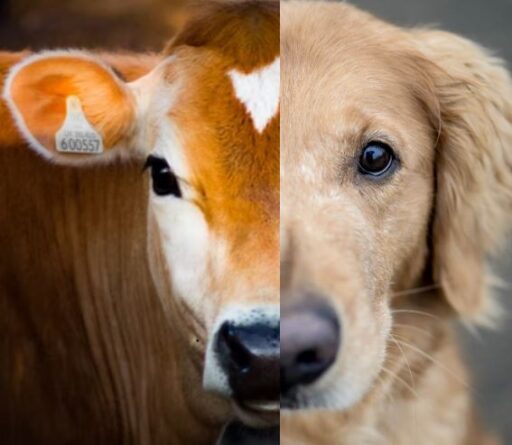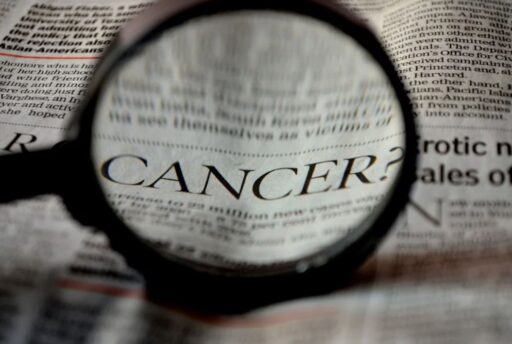Before I beccame vegan, I wondered, like many people, “Why do people go vegan?” Even when I was vegetarian, it didn’t seem to me on the surface like dairy or eggs caused harm. “So, what’s the issue?” I thought.
When I was a Rotary Youth Exchange student in Chile ten years ago, I ate meat. A lot of it!

So, what changed? Simply put: I became curious about where our food really comes from and began to research.
I used to think veganism seemed “extreme” because I didn’t understand it. What seems extreme to us is based on the concept of the Overton Window. This range of what is currently acceptable in society shifts throughout generations.

As a result, what seemed extreme to the previous generation becomes the social norm for the next. Women gaining the power to vote seemed extreme; the idea that smoking caused cancer was unbelievable a generation ago; not eating animal products seems extreme to us now.
But, the more I’ve learned about veganism, the more I have recognized that becoming vegan has a hugely positive impact on personal and public health, the climate crisis and many social justice issues.
Think you would never go vegan? I did, too. But what I learned changed my mind.
Why do people go vegan? For Climate Justice

First up: climate justice. According to the largest-ever food production analysis conducted in 2018 and published in the journal Science, shifting to a vegan diet is the single biggest action each of us can take to stop the climate crisis, far bigger than cutting down on your flights or buying an electric car.
This is due to animal agriculture’s land and water use, greenhouse gas emissions, air pollution and water pollution.
We’re already on a crash course for the largest mass extinction of species in 65 million years. Even if we eliminated fossil fuel emissions, we would not meet the Paris Accord target with current trends in the global food system that demand energy-intensive animal products.
Why do people go vegan? For Health Justice
Health justice is about making sure that we all have what we need to be healthy, regardless of education, income level, racism, classism, or other social determinants of health. It encompasses both personal and public health.
Personal Health

Plants help prevent and treat disease; animal products promote disease. A whole foods plant-based diet increases your life expectancy, improves your energy, helps prevent heart-disease, stroke, cancers, diabetes, obesity, multiple sclerosis, osteoporosis, kidney stones, dementia, cataracts, arthritis and more. It even alleviates constipation and improves sexual function.
Vast amounts of evidence from academic research not funded by the animal agriculture industry support these statements, like the American College of Lifestyle Medicine, NutritionFacts.org and the Physicians’ Committee for Responsible Medicine.
The Protein Myth

What everyone wants to know is, “Where do you get your protein?” If you’re getting enough calories, you’re getting enough protein. You essentially have to be calorie deficient to be protein deficient. All plant foods contain protein, but marketing has led many to believe that only animal products do.
In fact, carnivores and vegetarians alike get on average 70% more protein than they need every day. According to the World Health Organization (WHO), we only need to consume only 5-10% of our daily calories from protein, which plant foods naturally provide.
The World Health Organization, American Academy of Nutrition and Dietetics, and the British Dietetic Association all state that well-planned vegan diets are nutritionally adequate across the lifespan.
Not only do we not need to go out of our way to get enough protein, we should be wary of getting too much from animal-based sources. Strong evidence from decades of high-quality studies links high-protein diets to many chronic diseases due to the fat, cholesterol and protein itself in animal products.
Research connects diets high in animal protein with numerous cancers, including colon cancer, colorectal cancer, breast cancer and prostate cancer, as well as type 2 diabetes, inflammatory bowel disease, cardiovascular disease, kidney disease, dementia, and increased all-cause mortality.
You also don’t need to take care to combine proteins – this is a myth that was dispelled decades ago. You obtain all the essential amino acids naturally from the various plants you eat each day.
Federal Dietary Guidelines are industry-influenced

All this might be hard to believe because we have been socialized since childhood to believe that animal protein is necessary to build muscle and cow’s milk builds strong bones. Yet these are unfounded claims created through powerful lobbying of the animal agriculture industry in collusion with the government.
The U.S. government spends about $38 billion annually to subsidize meat, dairy, fish and eggs, and billions more to bail out the industries when they make less than the previous year.
Every five years, the USDA and Department of Health and Human Services (HHS) offer a new edition of the Dietary Guidelines for Americans. Yet these guidelines represent food industry interests, not current science.
But my doctor says…

“But,” you say, “my doctor says to eat animal products!” Unless doctors pursue further training on their own, most have little knowledge about nutrition and its relationship to chronic disease because medical school offers virtually none.
This fact is well-established, supported by research studies published from 1985-2017 (see research studies published in 2017, 2015, 2014, 2014, 2014, 2010, and dating all the way back to 1985.). Medical school training can even bias doctors against the power of nutrition and lead them to push pills and procedures. Furthermore, the nutrition “education” that’s provided in medical school is typically sponsored by the food industry.
“Big Medicine” as a system profits from animal agriculture. Hospitals are in the business of treating sick people with expensive drugs and surgery after symptoms appear. They don’t profit by preventing them through lifestyle changes, and drug companies can’t patent prescriptions for plant foods.
But the health impacts of veganism extend beyond our personal health to address public health issues as well, including pandemics and antibiotic resistance.
Public Health
Preventing future pandemics

Wouldn’t we all like to know how to prevent another pandemic?
As it turns out, there’s one big thing we CAN do. Three out of every four emerging infectious diseases come from an animal source. There are hundreds of thousands of pathogens out there that could spill over as the next pandemic.
Animal agriculture, habitat destruction, biodiversity loss, and the wildlife trade have caused our major pandemics.
Already, there are eight new types of deadly avian flu circulating in factory farms around the world, each of which has the potential to be worse than COVID. Preventing future pandemics begins with your next meal.
The antibiotic resistance crisis

A slow-growing and lesser known pandemic is the antibiotic resistance crisis. The combination of poor hygiene and high drug use on factory farms fuels this growing pandemic.
In 2015, federal research found that between 36-79% of meats in the supermarket contained antibiotic-resistant bacteria, depending on the type of meat.
According to the Antibiotic Resistance Action Center, unless we act, we will soon enter a post-antibiotic world – the end of medicine as we know it. Eventually we’re going to run out of ways to safely kill these pathogens. This means that minor illnesses like strep throat or infected wounds could once again become deadly.
Why do people go vegan? For Social Justice
So, veganism offers huge health and environmental benefits. But at its core, it is a social justice movement. Social justice refers to a fair society in which all groups are valued. Veganism recognizes the injustice of a world that values some animals (our pets) but exploits and kills others arbitrarily for food, clothing, entertainment and research.
The social justice aspect of veganism encompasses world hunger, workers’ rights, environmental racism, wildlife protection and animal rights.
World Hunger

World hunger exists partly because we use our resources inefficiently. Instead of using cropland to feed people who are undernourished, we grow crops for farmed animals. If we stop breeding billions of farmed animals, we could feed an additional 4 billion people using that land.
The world’s most food insecure populations are also those most harmed by extreme weather events. Climate-change induced natural disasters lead to food loss and decreased crop yields.
Each time we buy animal products, we are voting to continue to feed farmed animals instead of people. We are voting against feeding the hungry and for resource-intensive foods for ourselves.
If we eat simply, others may simply eat.
Workers‘ Rights

Animal agriculture workers endure poor working conditions, low wages and debt, and higher rates of physical and mental illness. Because they are often undocumented, they typically lack access to adequate health care and legal protection.
Environmental Racism

Consuming animal products directly supports corporations that harm Black, Indigenous and People of Color and low-income groups, who are disproportionately likely to live in environmentally hazardous neighborhoods.
Factory farms produce millions of gallons of waste that pollute the air, water and land in the marginalized communities in which they are placed. Living near industrial facilities negatively impacts both physical and psychological well being. This constitutes what’s called environmental racism.
Wildlife Conservation

Few people know that eating animal products threatens wild animals as well. But plant-based diets are crucial to protecting biodiversity. Agriculture is the primary threat to 86% of species at risk of extinction. The more demand there is for animal products, the cheaper it is to clear natural land and use polluting fertilizers and pesticides.
Animal Rights and “Humane Slaughter“

To see if we can make a case for “humane” slaughter of farmed animals, let’s use the questions asked by activist Ed Winters:
- Am I against animal cruelty? (Everyone says yes.)
- What constitutes animal cruelty? (Would you agree that it is causing *unnecessary* harm?)
- Do we need to eat animal products to survive and thrive? (As we have seen, we don’t.)
- So, does eating animals constitute animal cruelty?
I’ll leave you with two thoughts on this one:
First, the social psychologist Melanie Joy wrote a book called Why Love Dogs, Eat Pigs, and Wear Cows. She explains how society conditions us to see animals differently based on their species, yet they do not differ in any way but our perception of them.
Have you ever noticed that we see our pets as individuals with personalities, but that society has conditioned us to view the animals we raise for food as one indistinguishable mass? Yet all animals have individual differences.
Second, the philosopher Jeremy Bentham said, “The question is not, ‘Can they reason? Nor, Can they talk? But, ‘Can they suffer?”
Dairy

Okay, I get why you wouldn’t eat meat, you say. But what’s wrong with dairy?
Dairy has a staggering environmental impact. One glass of dairy milk produces nearly 3x the emissions of any non-dairy milks. It wreaks havoc on our health, as it is addictive and promotes cancers, diabetes, arthritis, multiple sclerosis, weight gain, high blood pressure and osteoporosis.
The dairy industry exploits workers, who suffer from poor working conditions and negative impacts on physical and mental health.
Finally, of course, the dairy industry exploits animals, who endure physical pain and emotional and cognitive distress. Cows are like human females in that they only lactate after giving birth. So, to make them give milk, workers artificially inseminate them.
When the cow gives birth, farmers typically take her baby away in under a day because her calf would drink the milk they want to sell. After their bodies are spent, they are killed for meat after 4-5 years, when they naturally would live up to 20. Female calves are raised for the same cycle. Male calves are sold for veal.
Eggs

What about eggs? The ancestors of egg-laying hens laid only about thirteen eggs a year. But today’s chickens have been bred to lay about an egg a day. Not only is it a painful process for the chickens, but they lose vital nutrients through laying so many eggs, which weakens their bones. If you break open an egg and give it back to them, they will actually eat it because their bodies need the nutrients.
Living in factory farming conditions is so stressful for chickens that they will peck violently at each other. Because of this, farmers cut off their beaks and toes.
Because the baby male chicks of laying hens will not lay eggs and don’t grow as fast as chickens bred for meat, they are simply disposed of. As many as seven billion newborn baby male chicks globally are killed within hours of being born by being gassed or dropped into wood chippers.
From a health perspective, it’s illegal for eggs to be labeled “healthy” or “good for you” because of saturated fat and cholesterol levels. They can’t even legally be labeled “safe” because of the likelihood of salmonella poisoning. Eggs also promote cancer, diabetes, heart attack and stroke.
Fish

Although we often overlook the impact of eating aquatic animals, commercial fishing is inherently unsustainable. Boats drag cathedral-sized trawling nets through the water, wiping out oxygen-producing mangroves and coral reefs. Fish are also vital to coral reefs and the ocean’s ability to absorb heat and carbon dioxide to stabilize our climate.
Additionally, hundreds of thousands of dolphins, whales, sea turtles and sharks are caught and killed each year accidentally as bycatch. The industry also leaves behind millions of tons of plastic fishing gear in the water each year, which kills marine animal and plant life.
We often have a hard time experiencing empathy for fish because their faces can’t show emotion and they can’t cry out in pain when we pull them from the water. But fish, too, experience pain, have personalities, recognize individual humans, have memory, communicate, and can even enjoy being petted.
Although fish have been marketed for their supposed health benefits, fish contain saturated fat and cholesterol and often contain microplastics, mercury, and toxins. We can get omega-3s without those drawbacks from walnuts and flax seeds, as well as algae oil, which is where the fish get it to begin with.
The new science is this: fish are wildlife, not seafood. We’re all better off leaving fish (and other creatures) in the ocean.
Honey

From an environmental perspective, according to The Department of Zoology at Cambridge University, “The crisis in global pollinator decline has been associated with one species above all, the western honeybee. Honeybees are artificially-bred agricultural animals similar to livestock such as pigs and cows. But this livestock can roam beyond any enclosures to disrupt local ecosystems through competition and disease.”
From an ethical perspective, bees have a brain and nervous system, and have been shown to demonstrate emotions and even exhibit pessimism, which is a sign of intelligence. Once the hives have been harvested for the honey, the whole hive is often killed off for the winter, as it is cheaper than feeding them for the winter.
Small scale, local farms

You might think, “Aren’t these all issues with factory farming, not small scale farming?” Firstly, 70% of cows and about 99% of other animal products in the U.S. come from factory farms. And despite marketing messages that want you to believe this, small scale farming does not solve these issues.
The production phase of food accounts for 83% of its carbon footprint, while transport only accounts for 10%. Eating locally does not have a significant impact on carbon emissions because what you eat is much more important than how far it traveled.
Furthermore, the earth simply cannot feed everyone on an animal-based diet, so pushing for more small-scale farming is a classist argument.
Finally, the end result is the same: killing without necessity.
Documentaries
Whatever cause you find most compelling, there’s a documentary for that! If you’re interested in learning more, several I would recommend include Eating Our Way to Extinction, Cowspiracy, Seaspiracy, Right to Harm, 10 Billion, The Gamechangers, The End of Medicine and Plant-Pure Nation.
Transition to vegan
Despite now knowing and caring about all this, you might still find it overwhelming to think about how you’d even begin to make such a change. Some free resources to start with include my 7-Week Transition to Vegan and 30 Day Vegan Challenges, like Vegan Boot Camp and Veganuary.
Veganism is abundance
The last thought I’ll leave you with is this: the destructiveness of commodifying animals is concealed by sanitized packages of animal products in the grocery store that belie the reality it took to produce them.
It’s maintained by cultural norms and our deeply ingrained desire to be accepted in our social circles. It’s facilitated by a common myth of feeling “deprived” on a plant-based diet.
But the more we learn, the more we realize that veganism is not about deprivation. It is about abundance – abundant compassion, abundant health, the preservation of our only home, and the prevailing of our values.


